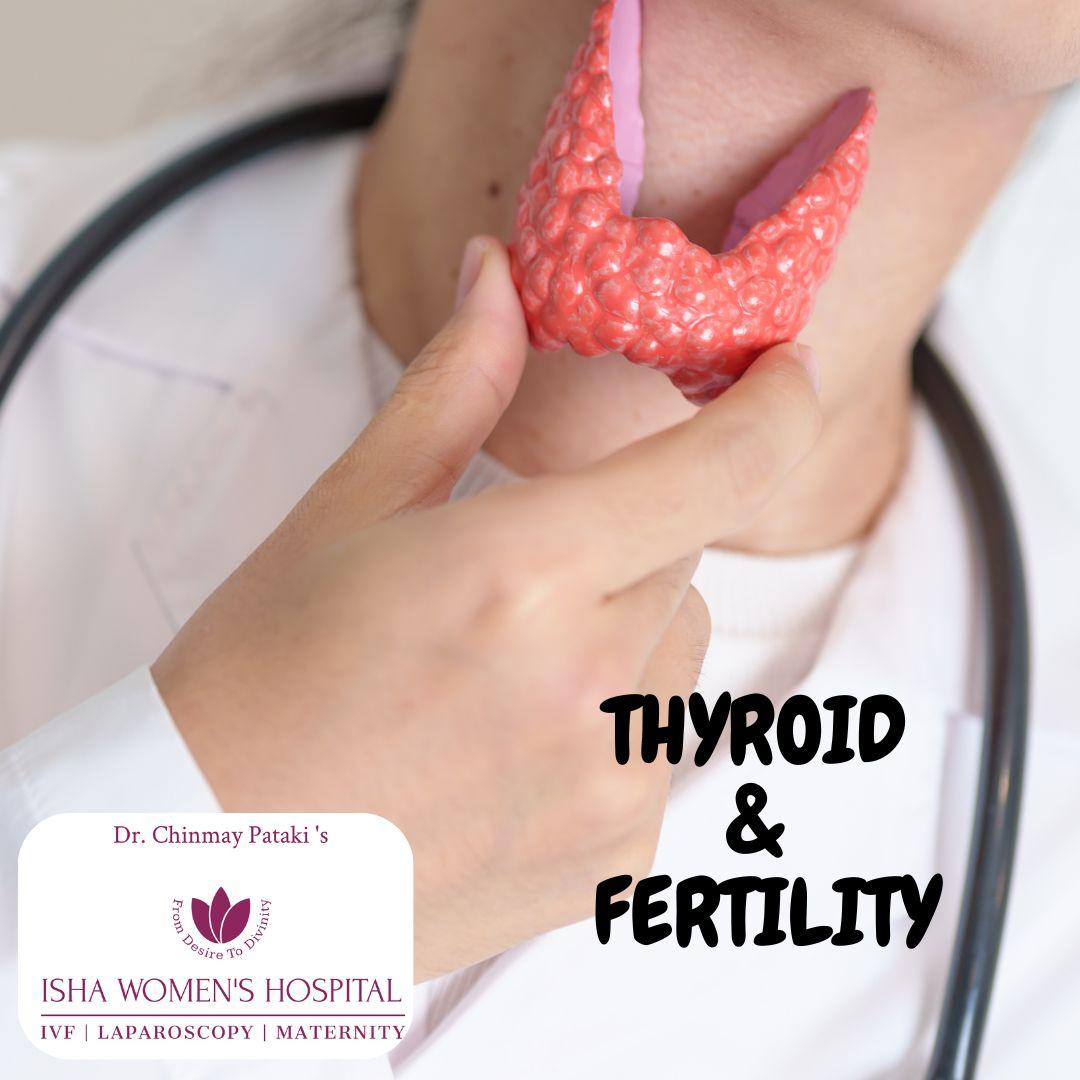Thyroid and Fertility: A Hidden Link You Shouldn’t Ignore

Dr. Chinmay Pataki’s Isha Women’s Hospital specialises in uncovering and addressing the hidden factors affecting your fertility, including thyroid health. Under the expert guidance of Dr Chinmay Pataki, the best gynaecologist and fertility consultant in Thane, Isha Women's Hospital provides comprehensive care tailored to your unique needs.
The Connection Between Thyroid and Fertility
Impact of Hypothyroidism (Underactive Thyroid)
- Irregular or absent ovulation, reducing your chances of conception.
- Higher risks of miscarriage, preterm delivery, and developmental delays in the baby.
Impact of Hyperthyroidism (Overactive Thyroid)
- Irregular menstrual cycles and reduced egg quality.
- Risk of preeclampsia, miscarriage, and low birth weight
Symptoms:
- Fatigue or excessive energy fluctuations
- Irregular periods or heavy menstrual bleeding
- Unexplained weight changes
- Hair thinning or hair loss
- Sensitivity to cold or heat
- Mood swings or depression
Frequently Asked Questions (FAQs)
Answer: The thyroid gland regulates hormones that control metabolism and reproductive function. Both hypothyroidism (underactive thyroid) and hyperthyroidism (overactive thyroid) can disrupt ovulation, menstrual cycles, and hormone balance—making it harder to conceive or carry a pregnancy to term.
2. What are the symptoms of thyroid-related fertility problems?
Answer: Common signs include:
- Irregular or absent periods
- Unexplained weight gain or loss
- Fatigue, anxiety, or depression
- Hair thinning
- Difficulty conceiving
- Recurrent miscarriages
If you’re facing these symptoms along with fertility issues, a thyroid evaluation is essential.
3. Can thyroid disorders cause miscarriage or pregnancy complications?
Answer: Yes. Uncontrolled thyroid imbalances can increase the risk of:
- Miscarriage
- Preterm labor
- Preeclampsia
- Low birth weight
Managing thyroid levels before and during pregnancy is crucial for both maternal and fetal health.
4. How are thyroid issues diagnosed in fertility cases?
Answer: A simple blood test can measure levels of:
- TSH (Thyroid-Stimulating Hormone)
- T3 and T4 (thyroid hormones)
- Thyroid antibodies (to check for autoimmune conditions like Hashimoto’s or Graves’ disease)
These help assess whether thyroid function is affecting fertility.
5. Can fertility be restored after treating thyroid disorders?
Answer: Absolutely. Once thyroid levels are balanced with medication and lifestyle changes, most women can resume regular ovulation and improve their chances of conception. At Isha Women’s Hospital, we provide comprehensive thyroid and fertility care under one roof.
Conclusion
If you’re struggling to conceive or suspect thyroid issues may be affecting your fertility, don’t wait. Book a consultation with Dr. Chinmay Pataki, the best gynecologist and fertility specialist in Thane, and take the first step towards a brighter future.
